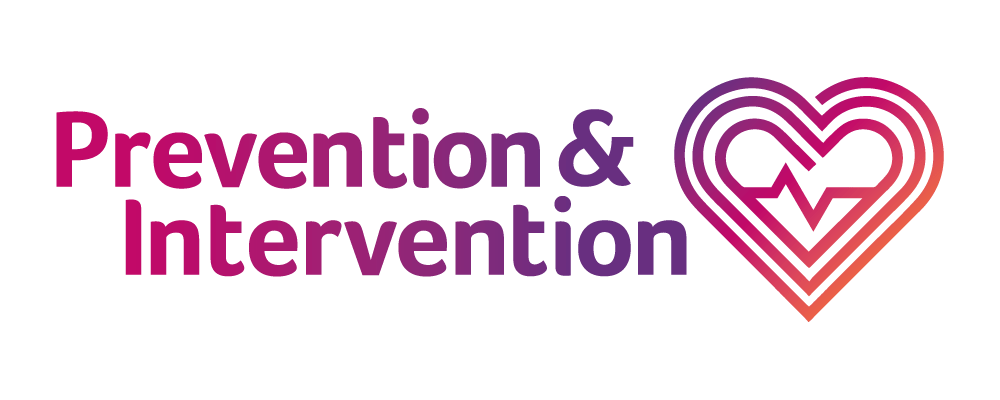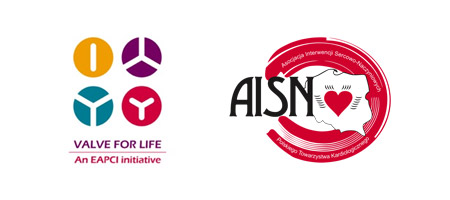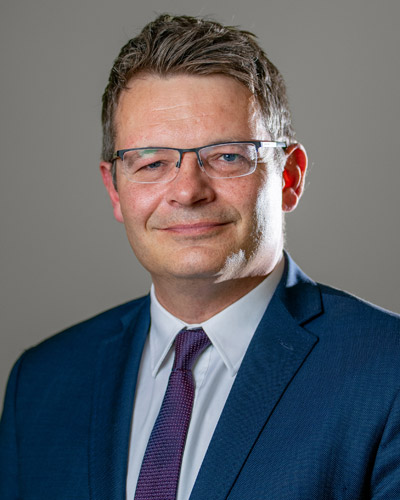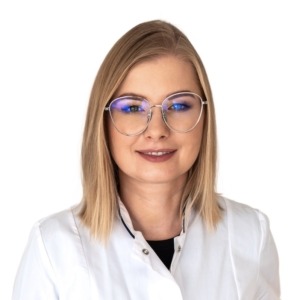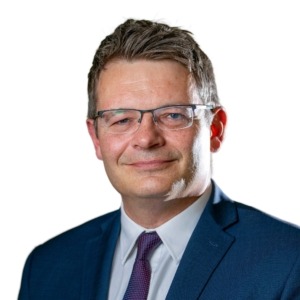© 2023-2026 Prevention & Intervention
Zastawki pod kontrolą – nowoczesne terapie przezcewnikowe w codziennej praktyce klinicznej / Heart Valves in Focus – Modern Transcatheter Therapies in Everyday Clinical Pratice
Kurs przeznaczony dla wszystkich, którzy zajmują się diagnostyką wad zastawkowych serca – od lekarza podstawowej opieki zdrowotnej po specjalistów kardiologii / All involved in the diagnosis of valvular heart disease – from primary care physicians to cardiologists
Warsztat w j. polskim / workshop in Polish
Patronat/Endorsed by:
AISN and EAPCI Valvular and Structural Heart Disease Committee
Dyrektorzy warsztatów / Workshop directors
Zenon Huczek, Wojciech Wojakowski, Michał Hawranek, Nicole Karam
Piątek, 10.10.2025
12:00 – 15:00
12.00 – 12.10 Powitanie i przedstawienie celów kursu / Nicole Karam (EAPCI), Zenon Huczek (AISN)
Sesja 1: Przełom w leczeniu stenozy aortalnej – co każdy lekarz powinien wiedzieć o TAVI
Panel: Adam Witowski, Dariusz Dudek, Janusz Kochman, Radosław Parma, Maciej Dąbrowski, Łukasz Lewicki, Michał Hawranek, Zenon Huczek
12.10 – 12.25 TAVI – od kwalifikacji, poprzez zabieg, do wypisu – Bartosz Rymuza
12.25 – 12.30 Pacjent z bioprotezą aortalną – jak postępować, czego się spodziewać? – Radosław Parma
12:30 – 12:50 Dyskusja
Sesja 2: Przezcewnikowe leczenie niedomykalności mitralnej – szansa dla chorych wysokiego ryzyka
Panel: Wojciech Wojakowski, Piotr Scisło, Radosław Targoński, Adam Rdzanek, Jerzy Pręgowski
12.50 – 13.00 Jak rozpoznać MR (typowe objawy, badanie fizykalne, rola ECHO) i kiedy skierować do oceny pod kątem terapii przezcewnikowej (M-TEER/TMVR) – Piotr Scisło
13.00 – 13.10 M-TEER – od kwalifikacji, poprzez zabieg, do wypisu. Co jest ważne w opiece ambulatoryjnej? – Wojciech Wojakowski
13.10 – 13:20 Implantacja bioprotez u chorych ze zdegenerowaną zastawką chirurgiczną i natywną MR (TMVR) – Zenon Huczek
13:20 – 13:35 Dyskusja
Sesja 3: Nowe możliwości w terapii niedomykalności trójdzielnej – koniec zapomnianej zastawki
Panel: Marek Grygier, Adam Rdzanek, Piotr Scisło, Marcin Fijałkowski, Jerzy Pręgowski
13.35 – 13.45 Obraz istotnej niedomykalności trójdzielnej w badaniu echokardiograficznym – kiedy i kogo skierować do T-TEER i TTVR – Marcin Fijałkowski
13.45 – 13.55 Kto jest optymalnym kandydatem do T-TEER? – Marek Grygier
13.55 – 14.05 Nowatorskie terapie – heterotopowe i ortotopowe wszczepienie bioprotezy trójdzielnej (TTVR) – Adam Rdzanek
14:05 – 14:15 Dyskusja
14:15 – 14:20 Przerwa
Sesja 4: Ćwiczenia na symulatorach
14.20 – 15.00
Symulatory TAVI (Medtronic, Edwards, Abbott)
Symulatory M-TEER (Edwards)
Symulatory T-TEER/TTVR (Edwards)
Nowoczesne strategie PCI w praktyce klinicznej – od obrazowania po optymalizację zabiegów wieńcowych – warsztat interaktywny / Modern PCI Strategies in Clinical Practice – From Imaging to Optimization of Coronary Procedures: An Interactive Workshop
Warsztat w j. polskim / workshop in Polish
Piątek, 10.10.2025
12:00 – 16:30
Wprowadzenie i cele warsztatu
Wykłady eksperckie
Prowadzenie: Marta Kałużna-Oleksy, Michał Hawranek
12:05 Bioadaptor – nowe możliwości i strategie implantacji – Michał Hawranek
12:17 Lithix – technologia i pierwsze doświadczenia kliniczne – Marta Kałużna-Oleksy
12:29 Ocena vessel motion i remodeling w obrazowaniu – Łukasz Pyka
Sesja case-based
Prowadzenie: Łukasz Kołtowski, Grzegorz Sobieszek, Marek Koziński
12:45 Lithix Case 1: zwapnienia koncentryczne – Łukasz Kołtowski
13:00 Lithix Case 2: zwapnienia długie/rozsiane – rola Lithix w leczeniu wielu zmian – Grzegorz Sobieszek
13:15 Lithix Case 3: zwapnienia w pniu LTW – zastosowanie Lithix – Marek Koziński
13:30 Bioadaptor / IVUS-guided PCI – ciekawe przypadki – Michał Hawranek
13:45 IVUS w codziennej praktyce – sizing, plaque morphology, optimization – Michał Wróbel
14:00 AI w optymalizacji stentowania (Boston AI tools) – Łukasz Lewicki
Hands-on IVUS trening (3 stacje, rotacje po 40 min)
Prowadzenie: Michał Hawranek, Łukasz Pyka, Michał Wróbel
Stacja 1: Ocena zwapnień (arc, depth, calcium scoring)
Stacja 2: Optymalizacja implantacji stentu (stent expansion, malapposition, edge dissection)
Stacja 3: Ocena pozabiegowa (remodeling, motion, edge issues)
Podsumowanie i panel Q&A
Creating an Inclusive Environment for LGBTQIA+ Patients and Populations: A Culturally Competent Approach to Preventative Care
Friday, 10.10.2025
16:00 – 18:00
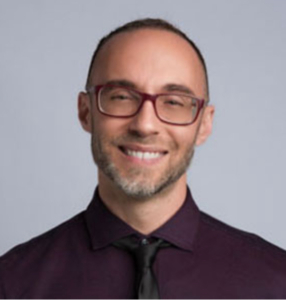
Anthony Dissen
Chair
Prevention & Intervention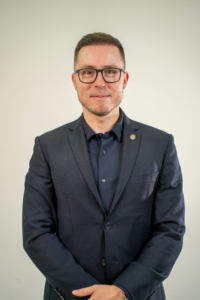
Michał Czapla
Chair
Prevention & InterventionWorkshop Description
LGBTQIA+ individuals face unique health disparities and challenges in healthcare settings that can impact their overall wellbeing, their risk for chronic diseases, and their willingness to seek out medical care. While there has been progress globally in legal protections and social acceptance of LGBTQIA+ people, significant health disparities persist due to factors such as minority stress, discrimination, and systemic barriers to care. This workshop is focused on equipping physicians and healthcare professionals with the knowledge, skills, and dispositions necessary to foster an inclusive, affirming, and culturally competent care environment for LGBTQIA+ patients.
Learning Objectives
• Understand the impact of minority stress on LGBTQIA+ individuals and how it impacts and influences their health outcomes
• Identify key social determinants of health that contribute to disparities in LGBTQIA+ populations
• Recognize and mitigate microaggressions in clinical interactions
• Implement best practices for creating a welcoming, competent, and affirming healthcare environment
• Identify key social determinants of health that contribute to disparities in LGBTQIA+ populations
• Recognize and mitigate microaggressions in clinical interactions
• Implement best practices for creating a welcoming, competent, and affirming healthcare environment
Key Topics Covered
1. Understanding Minority Stress and Its Health Implications
LGBTQIA+ individuals experience a unique form of stress known as minority stress, which stems from chronic exposure to discrimination, stigma, and social exclusion. Research shows that this stress contributes to higher rates of anxiety, depression, substance use disorders, and suicidal ideation within LGBTQIA+ populations. Additionally, healthcare-related discrimination—such as being misgendered, denied services, or facing judgment—can lead to medical avoidance, delays in seeking care, and poorer health outcomes. In this section, participants will explore real-world examples of how minority stress manifests in clinical settings and discuss strategies for reducing its impact.
2. Social Determinants of Health: Barriers to Equitable Care
Social determinants of health (SDOH) are the environmental, economic, and social factors that shape an individual’s well-being. For LGBTQIA+ populations, these determinants often include:
• Discrimination in employment and housing, leading to economic instability and lack of healthcare access.
• Higher rates of homelessness, particularly among LGBTQIA+ youth.
• Barriers to insurance coverage, such as exclusions for gender-affirming care.
• Stigma in medical settings, discouraging preventative care and routine screenings.
Participants will learn how to address these barriers through policy advocacy, community partnerships, and individualized patient support.
3. Microaggressions in Healthcare: Identifying and Mitigating Harm
Microaggressions—subtle, often unintentional comments or behaviors that convey bias or exclusion—can significantly impact LGBTQIA+ patients’ trust in healthcare providers. Examples include:
• Assuming a patient’s gender or pronouns.
• Making inappropriate inquiries about a patient’s sexual history or identity.
• Expressing surprise at a patient’s relationship status or family structure.
Through case studies and role-playing exercises, participants will develop strategies to recognize and correct microaggressions in real time.
4. Creating an Inclusive Care Environment
The workshop will conclude with actionable steps for building an LGBTQIA+-affirming healthcare practice, including:
• Using inclusive language and correct pronouns.
• Updating intake forms and electronic health records to reflect gender diversity.
• Implementing staff training on LGBTQIA+ cultural competence.
• Establishing clear non-discrimination policies within the practice.
This interactive workshop will provide physicians and healthcare professionals with practical tools to foster a healthcare environment where LGBTQIA+ patients feel safe, respected, and empowered to receive the care they deserve.
Maximising Success in Publishing Research Papers
Saturday, 11.10.2025
12:30 – 14:00
Professor Hayter will share his decades of experience as an editor, Editor-in-Chief, author and reviewer to discuss how to maximise success in academic writing and publishing research. This presentation will cover the ‘7 golden rules of writing’ and the ’10 top reasons for manuscript rejection’ to explore how we can develop our academic writing and improve the chances of success. It will also explore the way journals and editors work, how they process reviews and the influence of citations and impact factor in their assessment of new manuscripts.
Mark Hayter is Professor of Nursing at Manchester Metropolitan University UK and is the Editor-in- Chief of the Journal of Clinical Nursing (2021-present) and previously edited the Journal of Advanced Nursing (2013-2020). He holds Visiting Professorial appointments at the University of Genoa, Italy, Yangzhou University, China and the Chinese University of Hong Kong. Mark is a Fellow of the Royal College of Surgeons in Ireland (Faculty of Nursing), a Fellow of the American Academy of Nursing, a Fellow of the Royal College of Nursing, and a 2021 inductee into the Sigma Theta Tau International Nurse Researcher Hall of Fame. Mark has published over 200 scholarly papers: with a Scopus h-index of 30, a Clarivate h-index of 30 and a Google Scholar h-index of 39.
Editor-in-Chief, Journal of Clinical Nursing
Adjunct Professor, Hong Kong Polytechnic University
Visiting Professor, Yangzhou University, China
Visiting Professor, Chinese University of Hong Kong, Hong Kong
Visiting Professor, University of Genoa, Italy
Visiting Professor, Sri Ramachandra Institute, Chennai, India
Honorary Professor, Tung Wah College of Nursing, Hong Kong
Honorary Professor, Universitas Brawijaya, Indonesia
Visiting Professor, Hubei Medical University, China
ORCHID: https://orcid.org/0000-0002-
Twitter: https://twitter.com/
Wiki: https://en.wikipedia.org/wiki/
Publons: https://publons.com/

Professor Mark Hayter
Chair
RN, PhD, BA (Hons), Cert. Ed, M.Med.Sci, FEANS, SFHEA, FRCSI, FRCN, FAAN
Case challenge with Shockwave IVL
Sunday, 12.10.2025
10:25 – 11:55
No additional registration required.
Shockwave IVL: Expanding horizons in the treatment of coronary calcification (15 min.) – Michał Hawranek
Case 1 (10 min.) – Anna Mikołowicz-Mosiądz
Case 2 (10 min.) – Łukasz Pyka
Case 3 (10 min.) – Anastasiya Skoromna
Case 4 (10 min.) – Michał Wróbel
Case 5 (10 min.) – Anna Draus
IVL in registries (15 min.) – Wojciech Skorupski
How to deal with Shockwave-IVL in everyday practice – session summary (10 min.) – Marta Kałużna-Oleksy
